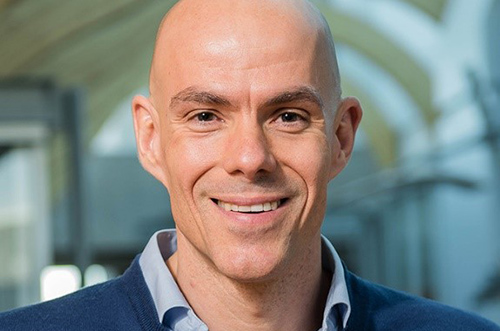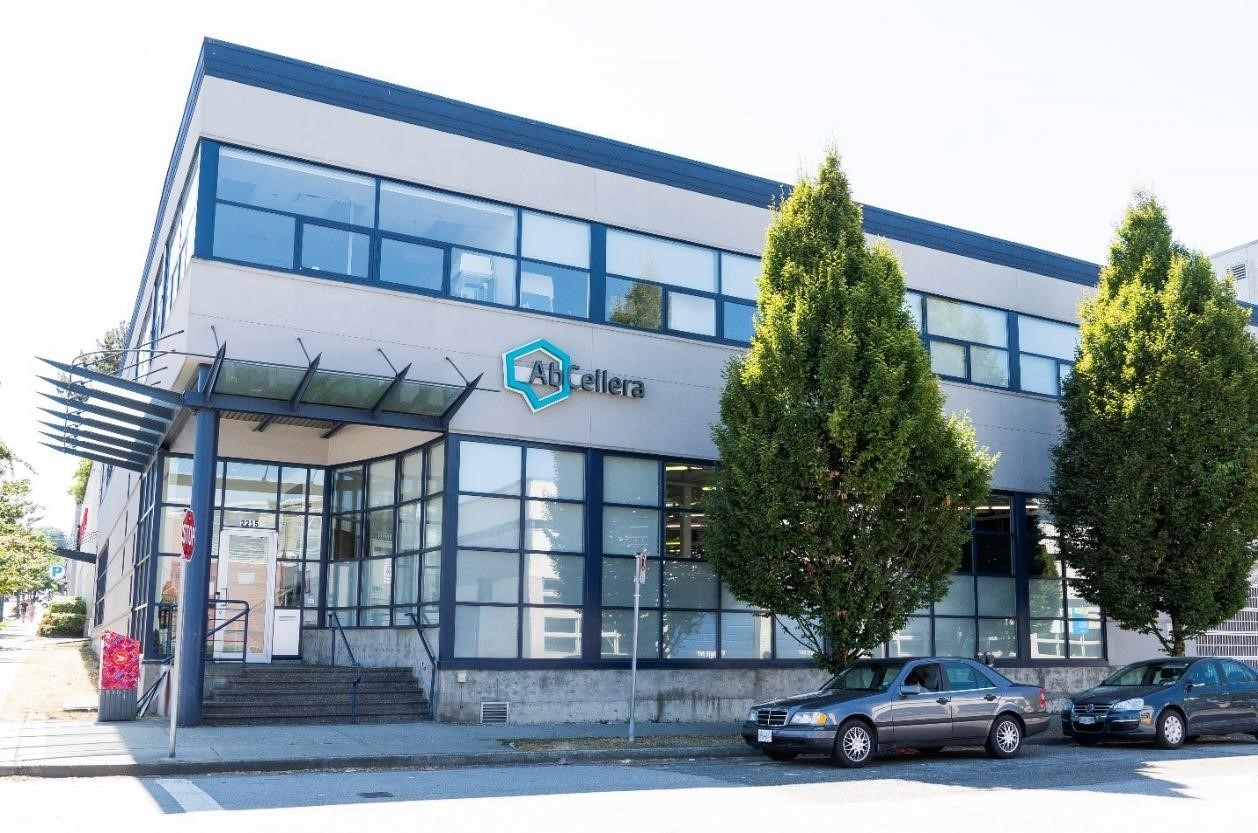You might already hold the cure for flu or dementia. How? Your body makes billions of unique antibodies and one of these could be the basis for a treatment. But, how do you find that one rare therapeutic antibody buried in the proverbial haystack?
Feature image - AbCellera’s Team Leaders: Ester Falconer, Kevin Heyries, Carl Hansen, Murray McCutcheon, Kathleen Lisaingo, Véronique Lecault, Sherie Duncan. Missing from the photo: Dan DaCosta, Maia Smith, Mani Hamidi.
AbCellera, a local biotechnology company founded at the University of British Columbia (UBC), has developed a new method that can search immune responses more deeply than any other technology. Using microfluidic technology developed at UBC’s Michael Smith Laboratories, advanced immunology, protein chemistry, performance computing, and machine learning, AbCellera is changing the game for antibody therapeutics.
Antibodies are the fastest-growing class of drugs. What makes antibodies so in-demand? Antibodies are defense proteins produced by specific immune cells called B cells. They target and bind precisely to bacteria, viruses, or other foreign molecules, and help the immune system neutralize and destroy foreign invaders. These same properties make antibodies extremely successful at targeting other diseases and open up a new avenue for therapy development.
AbCellera started out in 2012 at UBC with only six employees: Dr. Carl Hansen, an Associate Professor at UBC’s Michael Smith Laboratories and the Department of Physics and Astronomy, and five members from his research group. That year, the Hansen lab, in collaboration with Dr. Chip Haynes’ lab at UBC, had a major breakthrough and developed the microfluidic fluorescence bead assay that is at the core of AbCellera’s technology. Not only did the technology fall in place at the right time, but Hansen also had a group of talented people who were looking to start the next stage of their careers.
AbCellera has grown from a modest group of six to over seventy-five employees in a range of fields including computational and data science, cell biology, protein chemistry, and biophysical engineering. Not only have they grown in the number of people, but they have also developed strong partnerships with some of the leading pharmaceutical and biotechnology companies in the world. Hansen explains, “From the beginning, we wanted to work broadly with the best scientists and firms from around the world to help them accelerate their drug discovery programs. This drive has led to a series of collaborations including work with the Bill & Melinda Gates Foundation, and the Defense Advanced Research Projects Agency (DARPA).” True to their mission, AbCellera is working towards a solution to some of the biggest challenges in human health including cancer, neurodegenerative diseases, and global pandemics.
AbCellera is only one example in British Columbia’s growing hub of biotech companies. Vancouver is also home to impressive biotech companies like STEMCELL, ZymeWorks, Aspect Biosystems, and Microbiome Insights. Recent biological breakthroughs, increasing application of powerful computation, and an influx of capital, have created a fertile ecosystem for world-changing discoveries.
Post-secondary institutions in British Columbia are contributing to this growth by providing training like the Genome Science and Technology Graduate Program and the Bioinformatics Graduate Program, supporting the next generation of biotech scientists. These programs equip graduates with a diverse skill set, ready for a career in academia or industry. UBC’s institutions have already commercialized over 80 life sciences technologies through partnerships and licensing with corporate partners and created 94 spinoff companies. With biotechnology becoming a promising field to watch, it will be exciting to see what the future holds for biotechnology in British Columbia, and for rapidly growing companies like AbCellera.
Carl Hansen is the founding CEO at AbCellera, a therapeutic antibody discovery company that was created based on technology developed in his academic group at UBC where he is an Associate Professor. Through his career he has co-authored over 65 manuscripts in fields of microfluidics, immunology, genomics, and nanotechnology. He is an inventor on more than 50 patents and patent applications related to this work (38 granted) that are represented in 7 commercial microfluidic products. Dr. Hansen has been engaged in technology translation and entrepreneurship since 2002. In addition to leading AbCellera, he is a scientific co-founder of Precision Nanosystems, an industry leader in next-generation delivery technology for genetic medicines, and previously served on the SAB of Fluidigm corp. Carl holds a BASc in Engineering Physics & honours Mathematics (University of British Columbia, 2000), and a doctorate in Applied Physics and Biotechnology from Caltech, 2004, where he trained with Chan-Zuckerberg BioHub Director Stephen Quake. Prior to taking his UBC position, Carl trained as a postdoctoral fellow with biotech legend Leroy Hood at the Institute for Systems Biology.



